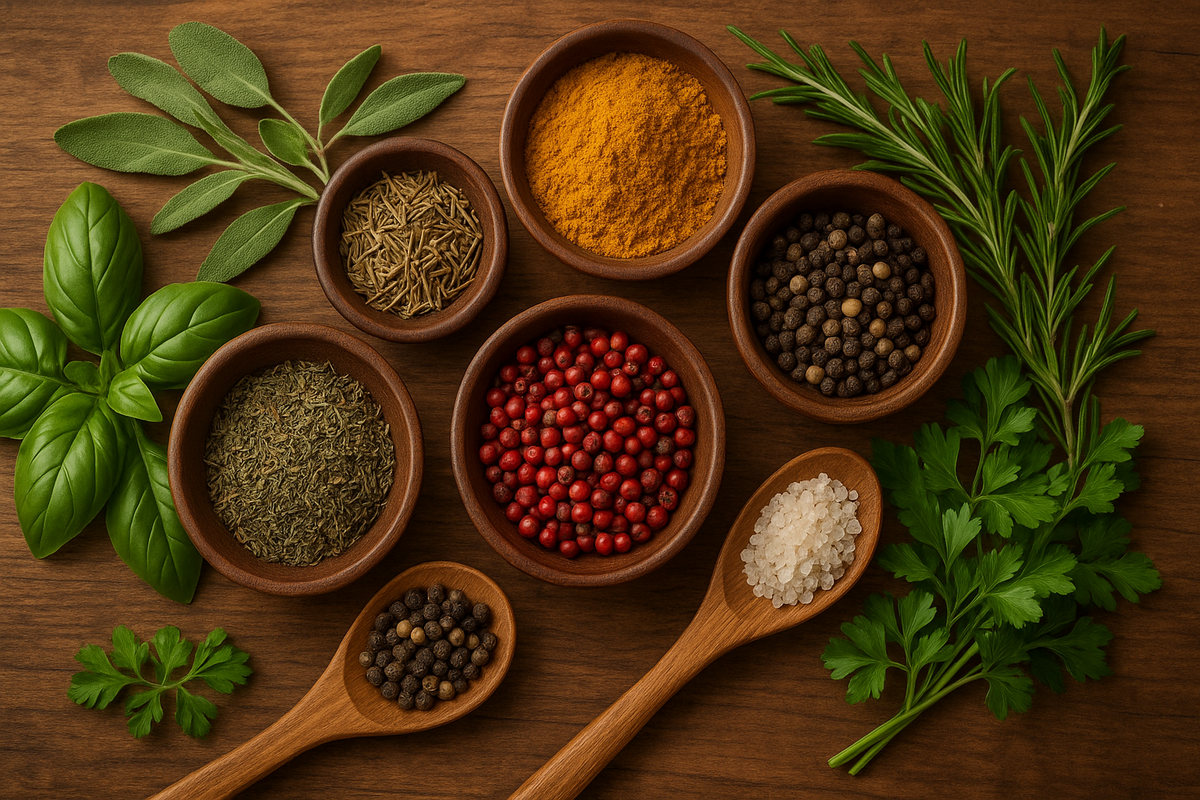Provençal cuisine is renowned for its vibrant flavors, sun‑kissed aromas, and the artful use of herbs and spices. Hailing from the picturesque region of Provence in southeastern France, this style of cooking emphasizes freshness, simplicity, and the natural essence of ingredients. One of the secrets to authentic Provençal dishes is the skillful combination of aromatic herbs and spices, which can transform even the simplest meal into a culinary experience reminiscent of the French countryside. Understanding which herbs to use and how to balance them is key to bringing Provençal flavors to your own kitchen.
Essential Herbs of Provence
At the heart of Provençal cooking are the aromatic herbs that define its unique taste. Classic staples include thyme, rosemary, and oregano, each contributing distinct notes of earthiness, pine, and warmth. Basil and marjoram add sweet and slightly minty undertones, while savory herbs like tarragon and sage provide depth to both meat and vegetable dishes. Lavender, often associated with the region’s fields, can be used sparingly to add a subtle floral aroma to roasted meats or desserts. A mixture of these herbs is commonly known as “Herbes de Provence,” which can be purchased pre-blended or combined at home, allowing cooks to adjust the balance to their taste and the dish being prepared.
Key Spices to Complement Provençal Dishes
While herbs are the cornerstone of Provençal flavor, spices play a supporting yet essential role in enhancing depth and complexity. Black pepper and paprika are frequently used to season meats and stews, providing warmth and subtle heat. Fennel seeds add a slightly sweet and anise-like flavor, often featured in sausages and vegetable dishes. Nutmeg, when used judiciously, can enrich creamy sauces or gratins without overpowering other flavors. The combination of fresh herbs and carefully selected spices creates the signature harmony of Provençal cuisine, balancing aromatic freshness with gentle seasoning that elevates natural ingredients rather than masking them.
Tips for Using Provençal Herbs and Spices in Your Cooking
To maximize the impact of Provençal herbs and spices, it is important to consider timing, quantity, and pairing. Fresh herbs are best added toward the end of cooking to preserve their aromatic oils, while dried herbs can be added earlier to infuse stews, roasts, or sauces. Experimenting with combinations allows for creativity: for instance, a blend of rosemary, thyme, and garlic works beautifully with roasted lamb, while basil, oregano, and tarragon enhance tomato-based dishes. Don’t be afraid to adjust ratios according to personal preference or seasonal ingredients. By thoughtfully integrating Provençal herbs and spices, home cooks can recreate the vibrant essence of the region, transforming everyday meals into flavorful, aromatic, and memorable dishes.
While mastering the essential herbs and spices of Provençal cuisine adds depth to your meals, you can also make cooking more playful and engaging by drawing inspiration from stories and characters. For example, families can create dishes inspired by their favorite characters in animated films, combining culinary learning with imaginative fun. A great resource for this is Cooking Favorite Dishes Inspired by Zootopia 2 Characters, where children and parents can explore themed recipes that teach both French cooking techniques and creativity, making mealtime an interactive and memorable experience.
